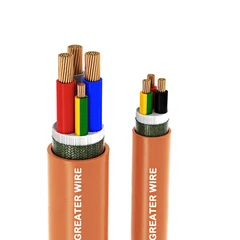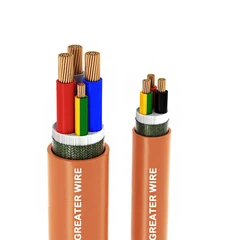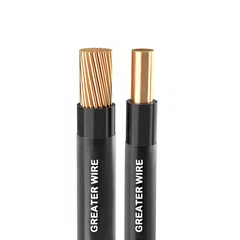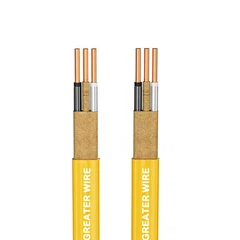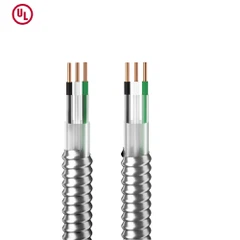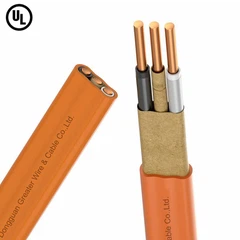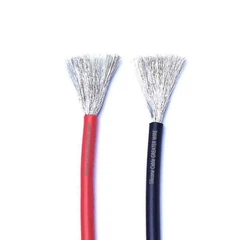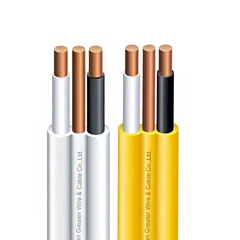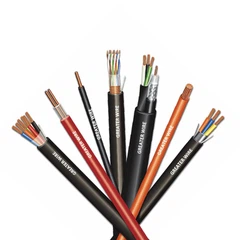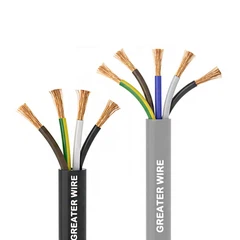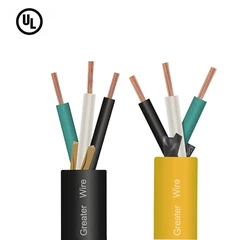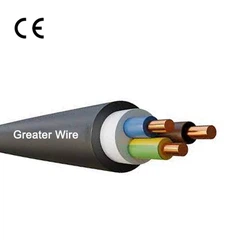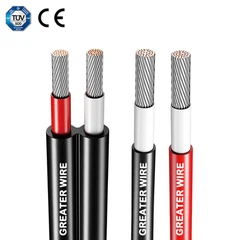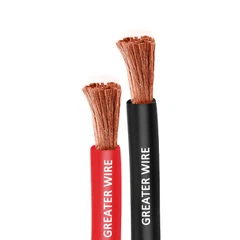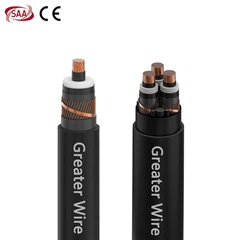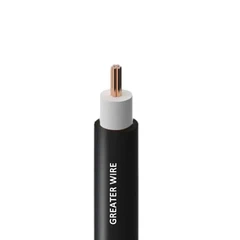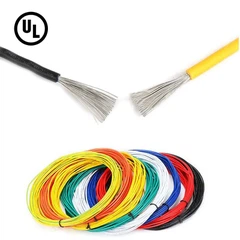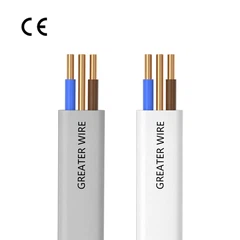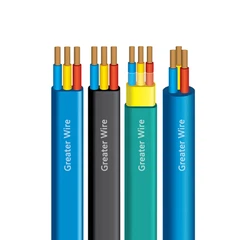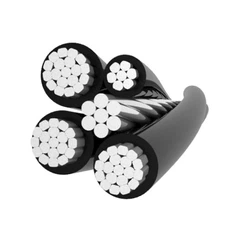In modern industrial, electrical, and electronic applications, wires play a critical role in ensuring safety, reliability, and performance. Whether it's powering a machine, transmitting signals, or connecting complex systems, the right wire selection directly affects operational efficiency and long-term durability.
Among the many wire types available, two products often spark debate during selection: Standard Copper Wire and Tinned Copper Silicone Wire. Customers frequently ask: Which one should I choose? While both are based on copper conductors, their insulation materials, protective coatings, environmental compliance, and application standards make them very different in practice.
This article provides a comprehensive comparison between Tinned Copper Silicone Wire and Copper Wire, helping you understand their electrical, mechanical, environmental, and application differences, so you can make an informed purchasing decision.
Basic Product Introduction
Standard Copper Wire
Standard Copper Wire uses pure or bare copper conductors, typically insulated with PVC (Polyvinyl Chloride) or similar materials. It is widely used in basic electrical installations, such as building wiring, home appliances, and general-purpose equipment.
Key Features:
Conductor: Bare copper
Insulation: PVC or PE (Polyethylene)
Temperature Resistance: Typically 70℃ – 105℃
Common Use: Household wiring, low-voltage installations, general electrical equipment
Tinned Copper Silicone Wire
Tinned Copper Silicone Wire consists of tinned copper strands insulated with silicone rubber. The tin coating enhances oxidation resistance, while silicone insulation provides exceptional flexibility, high-temperature endurance, and flame resistance.
Key Features:
Conductor: Stranded tinned copper (anti-oxidation, long service life)
Insulation: Silicone rubber, halogen-free
Temperature Resistance: -60℃ to +200℃
Standards: UL 758, UL 3620, VW-1 flame test
Common Use: Automotive, photovoltaic, robotics, medical devices, aerospace

Electrical Conductivity and Corrosion Resistance
Copper Wire:
Bare copper offers excellent conductivity but is prone to oxidation and corrosion, especially in humid or outdoor environments. Over time, surface corrosion can increase resistance, lowering performance.
Tinned Copper Silicone Wire:
Tinned copper conductors provide nearly the same conductivity as bare copper but with enhanced corrosion resistance. The tin coating prevents oxidation, extending the wire's lifespan in harsh or marine environments.
Environmental Compliance Comparison
Copper Wire (PVC Insulation):
Many PVC-based wires contain halogens. When burned, they release toxic gases (hydrochloric acid, dioxins), which are hazardous to health and the environment. As a result, these wires may face restrictions in eco-sensitive projects.
Tinned Copper Silicone Wire (Silicone Insulation):
Silicone wires are halogen-free, non-toxic, and RoHS/REACH compliant, making them safe for human use and environmentally friendly. This compliance allows them to easily enter strict markets such as Europe and North America.
Temperature Resistance and Flame Retardancy
Copper Wire (PVC Insulation):
Temperature Rating: 70℃ – 105℃
Flame Retardancy: Typically complies with IEC 60332-1 test
Limitation: Beyond 105℃, PVC insulation becomes brittle, reducing safety
Tinned Copper Silicone Wire:
Temperature Rating: -60℃ – +200℃
Flame Retardancy: Complies with UL 758, UL 3620, and flame test VW-1
Advantage: Maintains flexibility at extreme low and high temperatures, ensuring safety in demanding conditions
Industry Application Standards
Copper Wire:
Widely used in basic electrical installations
Certifications: IEC 60228, building electrical codes
Suitable for: Construction wiring, household devices, basic industrial setups
Tinned Copper Silicone Wire:
Used in advanced and safety-critical industries
Certifications:
Photovoltaics (EN 50618, TUV)
Automotive (ISO 6722)
Marine (ABS, DNV)
Medical equipment & robotics (UL/CE)
Suitable for: Renewable energy, automotive wiring harnesses, aerospace, marine, robotics, and medical devices
Why Choose Dongguan Greater Wire & Cable Co., Ltd.?
When selecting between Copper Wire and Tinned Copper Silicone Wire, the right supplier ensures not only high-quality products but also long-term project success.
At Dongguan Greater Wire & Cable Co., Ltd., we are committed to delivering premium wire solutions that meet global certification and customer-specific requirements.
Our Advantages:
✅ Global Certifications: All products comply with UL, CE, RoHS, REACH, meeting global standards.
✅ Customization Service: We provide tailored specifications (size, color, structure, packaging), free samples available.
✅ Premium Materials: High-purity copper conductors and superior insulation ensure long service life and stable performance.
✅ One-Stop Solution: From selection to production and after-sales, we deliver full-service support.
✅ 24/7 Quick Response: Our team ensures every inquiry and technical question is resolved promptly.
Dongguan Greater Wire & Cable Co., Ltd.
Tel/WhatsApp/Wechat: +86 135 1078 4550 / +86 136 6257 9592
Email: manager01@greaterwire.com
Whether you need basic copper wires for building installations or tinned copper silicone wires for advanced industries, we offer safe, durable, and certified solutions trusted by clients in over 50 countries.
Choose Greater Wire & Cable - your long-term partner for flexible and reliable wire solutions.

